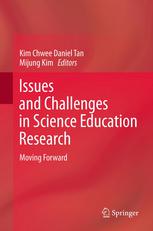

Most ebook files are in PDF format, so you can easily read them using various software such as Foxit Reader or directly on the Google Chrome browser.
Some ebook files are released by publishers in other formats such as .awz, .mobi, .epub, .fb2, etc. You may need to install specific software to read these formats on mobile/PC, such as Calibre.
Please read the tutorial at this link: https://ebookbell.com/faq
We offer FREE conversion to the popular formats you request; however, this may take some time. Therefore, right after payment, please email us, and we will try to provide the service as quickly as possible.
For some exceptional file formats or broken links (if any), please refrain from opening any disputes. Instead, email us first, and we will try to assist within a maximum of 6 hours.
EbookBell Team

5.0
30 reviewsIn contemporary society, science constitutes a significant part of human life in that it impacts on how people experience and understand the world and themselves. The rapid advances in science and technology, newly established societal and cultural norms and values, and changes in the climate and environment, as well as, the depletion of natural resources all greatly impact the lives of children and youths, and hence their ways of learning, viewing the world, experiencing phenomena around them and interacting with others. These changes challenge science educators to rethink the epistemology and pedagogy in science classrooms today as the practice of science education needs to be proactive and relevant to students and prepare them for life in the present and in the future. Featuring contributions from highly experienced and celebrated science educators, as well as research perspectives from Europe, the USA, Asia and Australia, this book addresses theoretical and practical examples in science education that, on the one hand, plays a key role in our understanding of the world, and yet, paradoxically, now acknowledges a growing number of uncertainties of knowledge about the world. The material is in four sections that cover the learning and teaching of science from science literacy to multiple representations; science teacher education; the use of innovations and new technologies in science teaching and learning; and science learning in informal settings including outdoor environmental learning activities. Acknowledging the issues and challenges in science education, this book hopes to generate collaborative discussions among scholars, researchers, and educators to develop critical and creative ways of science teaching to improve and enrich the lives of our children and youths.